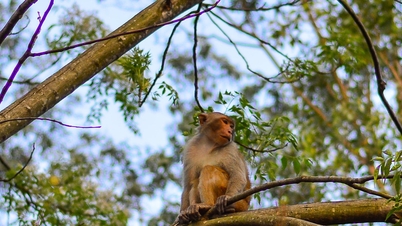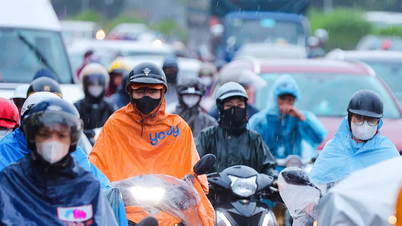The Indonesian Ministry of Health said on April 9 that there has been no risk of a case of the B virus in Indonesia. The confirmation from the Indonesian Ministry of Health came after media reports recently emerged that a man was attacked and injured by a group of monkeys at Kam Shan National Park in Hong Kong (China).
According to the Indonesian Ministry of Health , this is a zoonotic disease and considering the speed at which it spreads to humans, only one case has been reported so far. The disease is transmitted by animal bites and not from person to person, so it will not spread quickly.
However, the Indonesian Ministry of Health continues to remind people to be cautious, especially those who are on holiday in Hong Kong, China or areas with confirmed cases. People are also encouraged to seek medical attention if attacked by a monkey for proper treatment. If there are any wounds from bites or scratches, clean them immediately with soap and water.

Recently, the media reported that around the end of February, a 37-year-old man was attacked and injured by a group of monkeys in Kam Shan Park, Hong Kong. A few weeks after the incident, the man, who was usually in good health, suddenly fell ill and was taken to Yan Chai Hospital on March 21. He is currently in critical condition and is receiving intensive care. The Hong Kong Center for Health Protection found that the man's cerebrospinal fluid sample tested positive for the B virus.
According to the Centers for Disease Control and Prevention (CDC), the B virus is rare but can lead to brain damage and even death if not treated promptly. People can get the disease if they are scratched or bitten by an infected monkey, or if they come into contact with the monkey's eyes, nose, or mouth. Symptoms of the virus are similar to those of the flu, including fever, muscle aches, fatigue, and headache. Symptoms usually appear a month after contact with an infected monkey, but can appear as early as 3 to 7 days.
Source



![[Photo] Delegation attending the Government Party Congress visited President Ho Chi Minh's Mausoleum](https://vphoto.vietnam.vn/thumb/1200x675/vietnam/resource/IMAGE/2025/10/12/1760240068221_dsc-3526-jpg.webp)
![[Photo] The 1st Government Party Congress held a preparatory session.](https://vphoto.vietnam.vn/thumb/1200x675/vietnam/resource/IMAGE/2025/10/12/1760257471531_dsc-4089-jpg.webp)


![[Photo] National Assembly Chairman Tran Thanh Man attends the 725th anniversary of the death of National Hero Tran Hung Dao](https://vphoto.vietnam.vn/thumb/1200x675/vietnam/resource/IMAGE/2025/10/12/1760285740475_ndo_br_bnd-8978-jpg.webp)




























































































Comment (0)